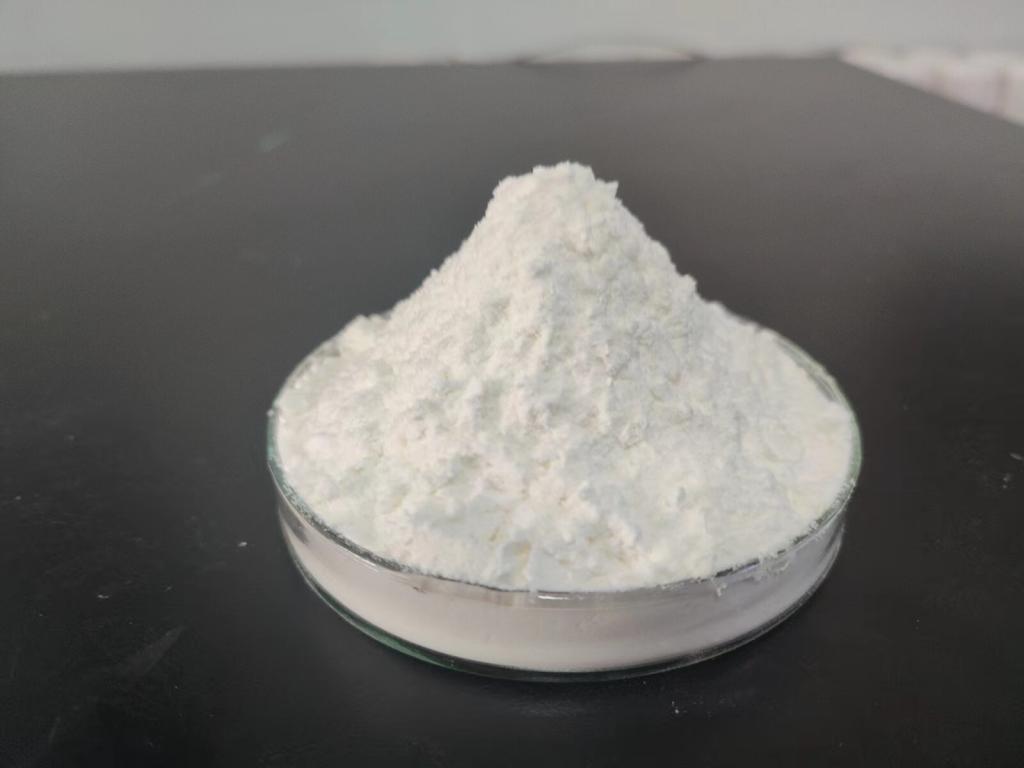Tel:+8618231198596

News
 CONTACT
CONTACT
 CONTACT
CONTACT
- Linkman:Linda Yao
- Tel: +8618231198596
- Email:linda.yao@dcpharma.cn
- Linkman:CHARLES.WANG
- Department:Overseas
- Tel: 0086 0311-85537378 0086 0311-85539701
News
Current Position:
Home >
News
>The impact of ε-Polylysine hydrochloride on the shelf life of pre-packaged salads.
The impact of ε-Polylysine hydrochloride on the shelf life of pre-packaged salads.
TIME:2024-09-27
Understanding ε-Polylysine Hydrochloride:
ε-Polylysine hydrochloride is a cationic polypeptide produced by certain strains of Streptomyces albulus. It consists of 25-35 lysine monomers linked by amide bonds, forming a linear, water-soluble polymer. ε-PL is recognized for its broad-spectrum antimicrobial activity against a wide range of Gram-positive and Gram-negative bacteria, as well as some fungi and yeasts. Its mode of action involves the disruption of the microbial cell membrane, leading to the leakage of intracellular contents and ultimately cell death. Due to its natural origin and effectiveness, ε-PL is approved for use as a food preservative in many countries, including Japan, China, and the United States.
Challenges in Preserving Pre-Packaged Salads:
Pre-packaged salads present unique challenges in terms of preservation. These products typically contain a mix of leafy greens, vegetables, and sometimes fruits, each with different moisture content, pH levels, and surface areas that can harbor microorganisms. The high water activity and nutrient-rich environment of pre-packaged salads make them particularly vulnerable to bacterial growth, such as Listeria monocytogenes, Salmonella, and E. coli, as well as mold and yeast. Additionally, the freshness and crispness of the salad components must be maintained to meet consumer expectations.
The Role of ε-PL in Extending Shelf Life:
Antimicrobial Efficacy:
ε-PL's ability to inhibit the growth of a broad spectrum of microorganisms makes it an effective preservative for pre-packaged salads. By controlling the proliferation of spoilage and pathogenic bacteria, ε-PL can significantly extend the shelf life of the product.
Studies have shown that the addition of ε-PL to pre-packaged salads can delay the onset of microbial spoilage, thereby reducing the risk of foodborne illness and ensuring that the product remains safe for consumption over a longer period.
Quality Preservation:
One of the key advantages of ε-PL is its minimal impact on the sensory attributes of the salad. Unlike some chemical preservatives, ε-PL does not impart off-flavors or odors, allowing the fresh, natural taste of the ingredients to be preserved.
The use of ε-PL can also help maintain the crispness and texture of the salad components, which are critical factors in consumer satisfaction. This is particularly important for leafy greens, which can quickly wilt and lose their appeal if not properly preserved.
Compatibility with Packaging Technologies:
ε-PL can be effectively incorporated into various packaging systems, including active and intelligent packaging. Active packaging can include ε-PL-impregnated films or sachets that release the antimicrobial agent gradually, providing continuous protection against microbial growth.
Intelligent packaging, equipped with indicators that monitor freshness, can work in tandem with ε-PL to provide real-time information about the product's condition, helping to prevent premature disposal and ensuring that the salad is consumed at its best quality.
Application Methods and Considerations:
Direct Addition:
ε-PL can be directly added to the salad dressing or rinse water used during the washing process. This method ensures that the antimicrobial agent is evenly distributed across the salad components, providing comprehensive protection.
The concentration of ε-PL should be carefully optimized to achieve the desired antimicrobial effect without affecting the sensory qualities of the salad. Regulatory guidelines and maximum permissible limits must also be adhered to.
Coating and Dipping:
Another approach is to apply ε-PL as a coating or through a dipping process. This method can be particularly effective for leafy greens and other delicate salad components, as it provides a protective layer that inhibits microbial growth.
Coatings and dips containing ε-PL can also be formulated to include other functional ingredients, such as antioxidants or moisture barriers, to further enhance the shelf life and quality of the pre-packaged salad.
Modified Atmosphere Packaging (MAP):
Combining ε-PL with modified atmosphere packaging (MAP) can provide a synergistic effect. MAP reduces the oxygen levels within the package, slowing down the respiration rate of the produce and inhibiting the growth of aerobic microorganisms. When combined with ε-PL, this can create a more robust barrier against spoilage and pathogen growth.
Conclusion:
The use of ε-polylysine hydrochloride in pre-packaged salads offers a natural and effective solution to extend shelf life while preserving the quality and safety of the product. By controlling microbial growth, maintaining sensory attributes, and integrating with advanced packaging technologies, ε-PL supports the production of fresh, appealing, and long-lasting pre-packaged salads. As the food industry continues to innovate, the integration of ε-PL into the preservation strategies for pre-packaged salads will likely play a crucial role in meeting the demands of both producers and health-conscious consumers. The natural and consumer-friendly properties of ε-PL make it a valuable asset in the ongoing effort to reduce food waste and ensure the availability of high-quality, convenient, and nutritious food options.
- Tel:+8618231198596
- Whatsapp:18231198596
- Chat With Skype







